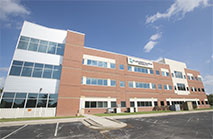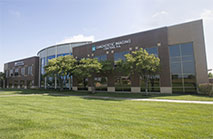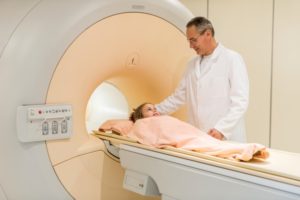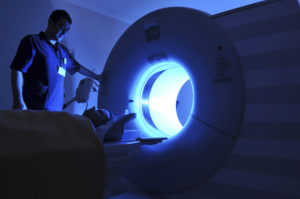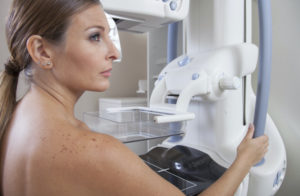Top 10 Questions About Mammography
 1. Why can’t I wear deodorant?
1. Why can’t I wear deodorant?
One of the signs we are looking for in every mammogram is tiny flecks of calcium, which can be a finding of early breast cancer. Deodorants and antiperspirants contain metals which can look just like those little flecks of calcium. The same is true with sparkly lotions and some powders. Avoid those on the day of your mammogram to make life easier for you and your radiologist!
2. Why do you have to compress (squeeze!) the breasts?
Approximately ten (10!) seconds of compression is a key part of every mammogram –even the 3D mammogram- for several reasons. The two most important reasons are these: First, compression prevents motion which can cause blurring and obscure findings in the breast tissue. Additionally, compression is a key way of separating normal breast tissue which compresses easily from cancers which are stiff and do not compress. Though not the most comfortable thing, it is key to getting a quality mammogram!
3. Why do I have to bring my old breast imaging studies?
Having your old studies to compare to your current is a key way of making sure your breast tissue is normal. Every breast is unique; there are a lot of benign, non-cancerous things that can be present in your breasts, like lymph nodes, calcifications, big vessels. If we have your old images, we will know what is normal for you. Without them we may have to do further work-ups.
4. What does it mean if I have dense breasts?
The more breast tissue and the less breast fat means a dense breast. This is important for two reasons: the first, dense breast tissue is harder to interpret by mammography – it’s not as easy to see some cancers due to the background tissue. Second, there is a slight increase in the risk for breast cancer when your breast density falls in the most dense category. What should you do? Ask your doctor to find out if you have dense tissue. Make sure you have your annual mammogram and clinical breast exam without fail. Talk with your doctor if you have other risk factors for breast cancer to see if any additional imaging is warranted. Remember – dense tissue is merely a trait and may occur in women of all shapes, sizes and ages.
5. Can I have a mammogram if I have breast implants? Will the implants rupture?
Women with implants should have their annual screening mammogram. You are at much more risk of developing breast cancer than you are at risk of having a complication with your implant. In doing a mammogram on a woman with implants, we are careful to apply only slight compression on the breast with the implant in place. Additional images are then taken with compression of the breast tissue with the implant gently moved out of the way.
6. When should I start getting a mammogram?
For women of average risk (no family history or history of chest radiation), begin yearly screening mammograms at the age of 40.
7. When should I stop having mammograms?
This is harder to give a firm answer to, but annual mammography will still find smaller, more easily treated breast cancers even in women in their 80s. If you are healthy and would undergo treatment if a breast cancer were to be found, continue those annual mammograms!
8. Do I really need a mammogram every year?
Yes!
9. I don’t really need a mammogram, do I, because:
- I have small breasts
- I have no family history
- I feel perfectly healthy
- I have no lumps
- My doctor didn’t tell me to…
Guess what? Absolutely none of the above “reasons” should sway you from having an annual mammogram. Cancer can be seen on mammography before it can be felt (yay mammography!) and occurs in women with no family history (upwards of 80% of the time!). And if your doctor didn’t tell you to… they may assume you already know to take care of yourself, especially since no doctor’s order is required for a screening mammogram!
10. Do you really like what you do (uttered every so often to our mammography technologists and sometimes to us!)?
The answer is yes – we really do. Don’t call us weird – call us weirdly caring. We do what we’re good at, we do what we feel passionately about in order to help. We do what we do because even if it means inflicting the occasional squish on a fellow woman, we know that together we can make a difference in the fight against breast cancer. Who wouldn’t love that?
Originally published 1/6/15 on mammographykc.com .
